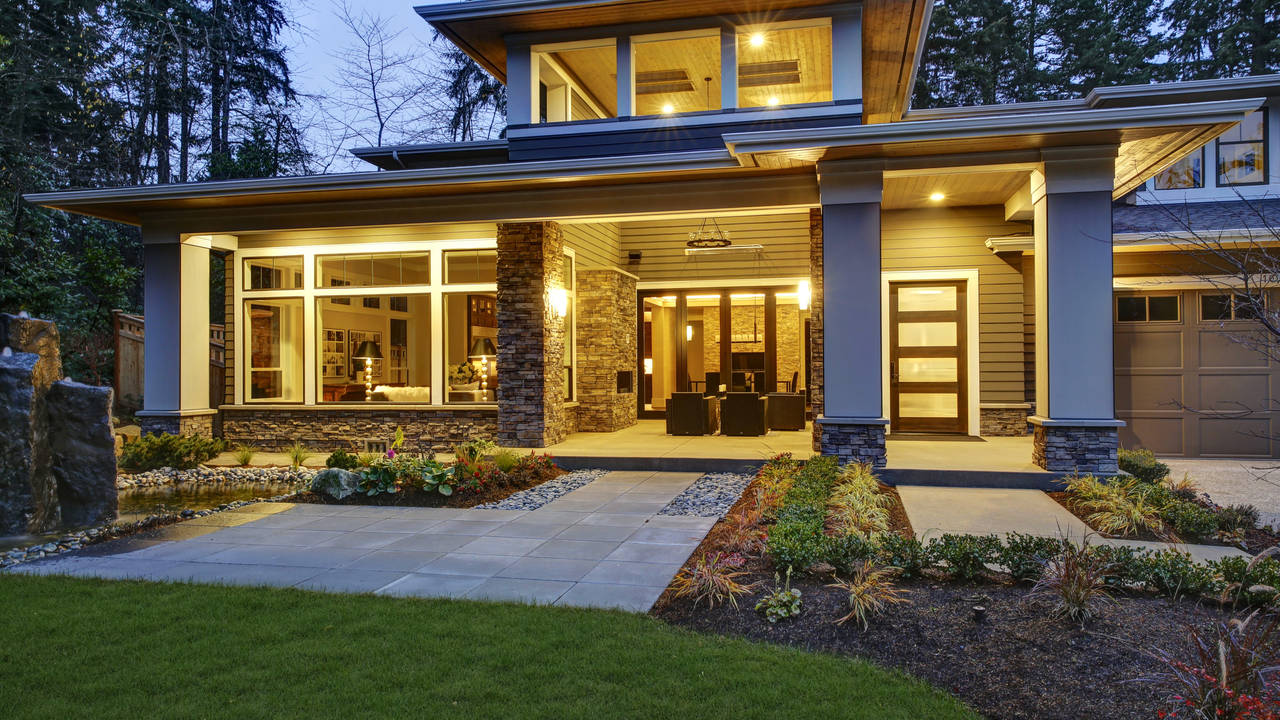The U.S. housing market has shown strong signs of trending in favor of sellers, especially in Florida. Recent data shows that there were 7.5% fewer homes on the market in the first quarter of 2018 for Florida than there were during that same period in 2017. A tighter market is good for sellers, but it's no guarantee you'll be able to effectively sell. And some other home costs, such as home and hurricane insurance rates, have been rising in the state. There are several ways you can improve the look of your home, but one tried-and-true method is improving the "curb appeal" by investing in solid landscaping.
In Florida, landscaping can be quite a task. Different areas of the state range from tropical to subtropical, and investing in new shrubs, flowers and grass can quickly go south if you don't consider the climate and the proper plants that will look good in the right conditions.
Before spending money to improve your home's landscaping to make the home easier to sell, consider the pros and cons that come with landscaping.
Positive Impacts of Landscaping
We'll start with the more immediate impact of landscaping: a more attractive home, referred to as "curb appeal." The outside of your home and its curb appeal is more likely to make buyers interested, and there's evidence that landscaping will improve the value of your home.
In a 2015 Washington Post article, HGTV's John Gidding, host of "Curb Appeal," explains how one project turned out big for the buyers. "On a 'Curb Appeal' project, I put in $20,000, and the sellers got $200,000 more than they had paid for the house just a year prior. The return was astonishing," Gidding told the Post.
Some estimates, including a 2012 Virginia Tech study, find that landscaping does indeed increase your home's value by a marketable degree. Virginia Tech's analysis found the increase to be around 12%, but Gidding says a 150% value increase is "conservative."
What appears to matter, however, are the kind of improvements you make. The Virginia Tech study found that design sophistication, plant size and diversity of plant material matter the most for improving the value of your home. Design sophistication is typically a matter of hiring a professional landscaper to revamp your front yard and backyard, while plant size will typically depend on the age of the plant. Buyers prefer older, more established plants.
As for plant diversity, the impact was smaller but notable, and it involves understanding which plants will look pleasing to buyers. Native plants are a huge selling point for buyers, as these are designed to withstand the tropical and subtropical conditions found in Florida. However, these plants will still need to be tended so they don't look sickly once you put your home on the market.
Negative Impacts of Landscaping
There's an obvious con to landscaping you'll discover pretty quickly: the cost. Unless you're a bit of a green thumb and you can DIY at a minimal cost, you're going to spend quite a bit to give your home's outside area a facelift.
According to LandscapingNetwork, projects can cost anywhere from $5,000 to $100,000 or more, depending on the complexity and size of the project. And while it's easy to think of that cost as an investment, you should note that it could decrease the value of your home if it doesn't pay it off. LandscapingNetwork recommends spending 10% of your home's value on landscaping.
Your landscaping project could potentially have the opposite effect if it's ill-conceived and turns off buyers. This may happen if, for example, you put too much personality into the design.
Letting your own preferences lead your landscaping choices may result in curb "unappeal," as potential buyers may feel the home would need too many changes to make it suit their own needs. As such, any landscaping project should focus on making changes that are widely accepted and as neutral as possible.
You will also need to consider the timing. A drought, severe storm or winter snap can easily kill new plants before they've become established, and weather-related landscaping typically isn't covered by homeowners insurance. You'll not only have to spend more money to redo the plantings, you may end up with a home that looks less appealing due to the damage.
However, none of this should scare you away from investing in your home's outer beauty. When faced with the question of whether landscaping is worth the effort, most realtors will tell you that it's a wise investment. Just make sure you don't rush the job, and consider which type of landscaping works best for your market. A good realtor can likely help you make a decision before you dive into the work.


Comments(0)